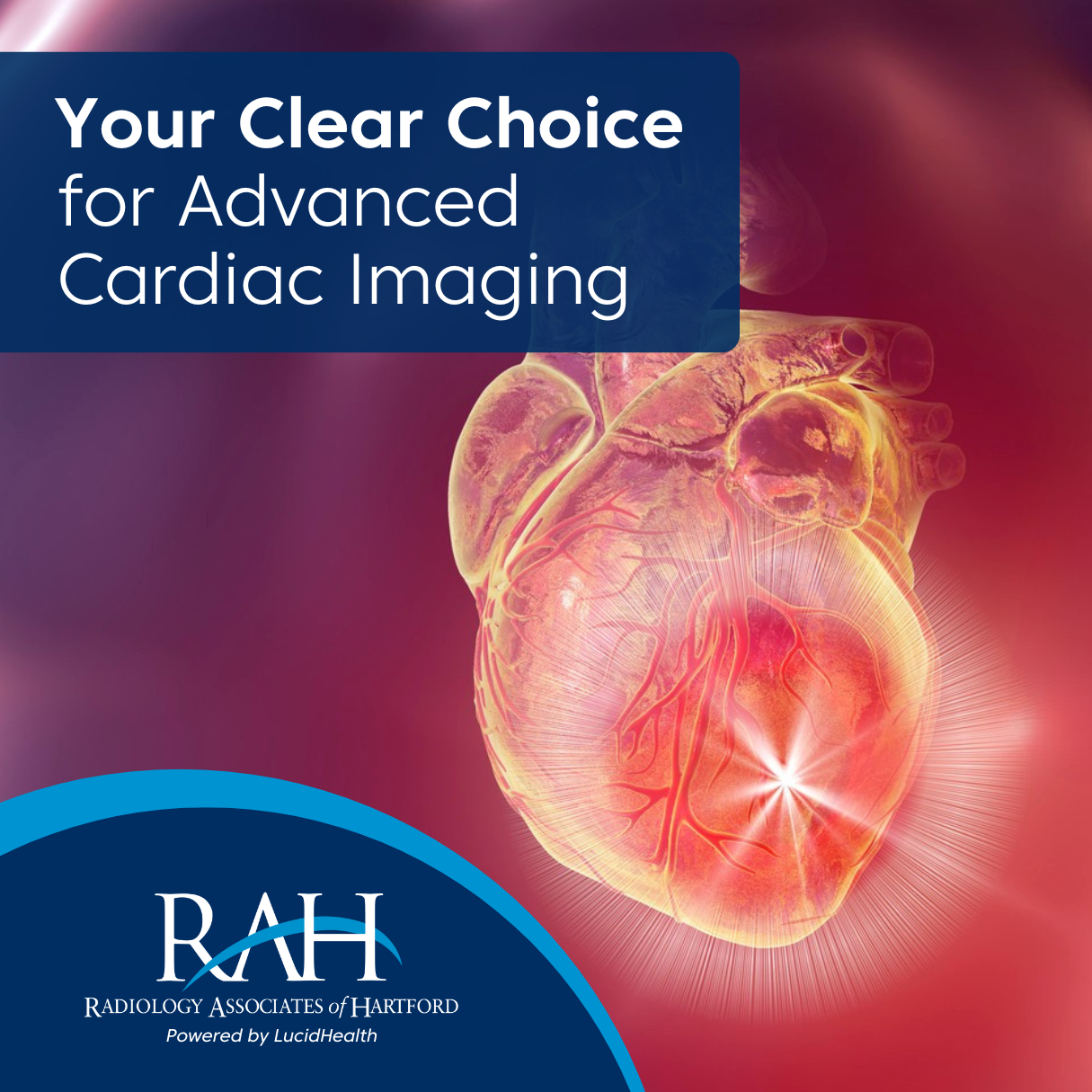Radiology Associates of Hartford is Central Connecticut’s most experienced and responsive radiology group for comprehensive cardiac imaging using the latest non-invasive technologies.
Our board-certified and fellowship-trained cardiac radiologists bring both expertise and a local, community-focused approach to care. Partnering with cardiologists and heart care specialists across the region, we are always accessible to consult with referring physicians to ensure timely communication and the best possible outcomes for our patients.
Our cardiac imaging services include:
Coronary Calcium Score
A Coronary Calcium Score (also known as a heart scan) is a quick, low-dose CT scan that detects the presence of calcium deposits in the coronary arteries. These deposits can indicate the early stages of coronary artery disease, even before symptoms appear.
Calcium build-up can be a sign of atherosclerosis—a leading cause of heart attacks. By quantifying the amount of calcium present, your doctor can assess your risk for heart disease and recommend lifestyle changes or treatments to help prevent a cardiac event.
Learn more about Coronary Calcium Scores >>
Cardiac MRI (3T and 1.5 Wide Bore Scanners)
Cardiac MRI is a powerful, non-invasive imaging test that uses magnetic fields and radio waves to create detailed images of the heart and surrounding structures. It is particularly useful for evaluating heart function, assessing damage from a heart attack, and diagnosing heart conditions like cardiomyopathies or congenital heart defects.
What it offers:
- High-resolution images of the heart muscle, valves, and blood vessels
- Assessment of scarring, inflammation, or structural abnormalities
Our advanced 3T MRI scanner located in the Bloomfield office, or the 1.5T wide bore scanners in Glastonbury and Rocky Hill are designed with patient comfort in mind and are operated by experienced technologists and fellowship-trained radiologists specializing in cardiac imaging.
Learn more about Cardiac MRIs >>
Coronary CTA (CT Angiography)
Coronary CTA is a non-invasive imaging test that uses a contrast-enhanced CT scan to visualize the coronary arteries in detail. It allows for rapid assessment of blockages or narrowing that could lead to chest pain or other symptoms.
We offer Connecticut’s only dual-source CT scanner outside of a hospital setting. Located in our Rocky Hill outpatient office, the Siemens Drive 128 slice CT scanner is one of only two in its class currently available in the state.
Benefits include:
- Fast and highly accurate diagnosis
- Detailed visualization of coronary artery anatomy
- Ideal for patients with intermediate risk of coronary artery disease
Using the latest CT technology, we ensure fast scans with low radiation exposure, helping your physician make confident decisions about your heart health.
Learn more about Coronary CTA (CT Angiography) >>
Heartflow® FFR-CT Analysis
Radiology Associates of Hartford is proud to offer Heartflow® FFR-CT Analysis, an advanced technology that provides a personalized, 3D model of your coronary arteries—derived directly from your Coronary CTA scan. This analysis evaluates how much blood is actually flowing to your heart, helping to determine whether blockages are likely to reduce blood flow and cause symptoms.
Why Heartflow makes a difference:
- Non-invasive alternative to traditional catheter-based angiography
- Helps avoid unnecessary procedures
- Backed by extensive clinical research
By combining anatomical and functional data, Heartflow® enables a more accurate diagnosis and better-informed treatment plan—all from one non-invasive test.
Learn more about Heartflow® FFR-CT Analysis
Radiology Associates of Hartford is committed to delivering high-quality, patient-focused imaging services. Our comprehensive cardiac imaging options are designed to help you and your healthcare team take proactive steps toward preventing heart disease and maintaining lifelong cardiovascular health.

